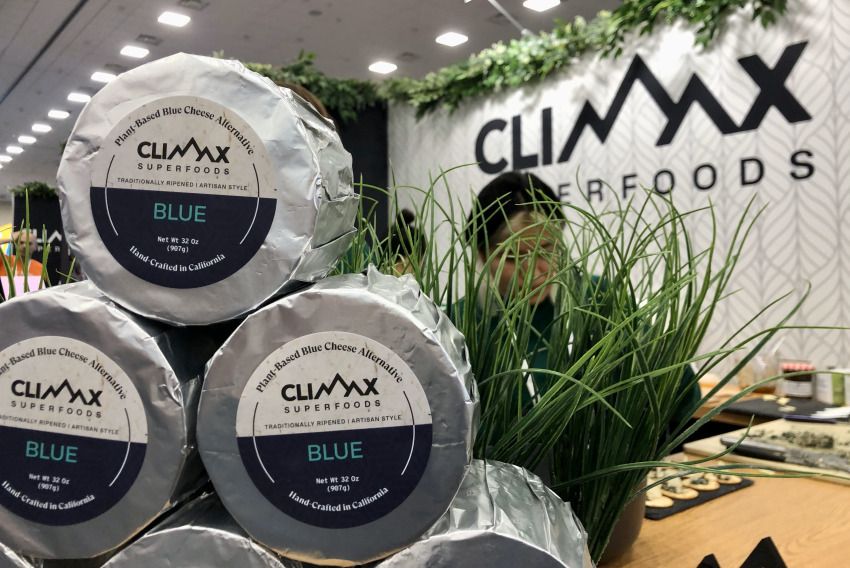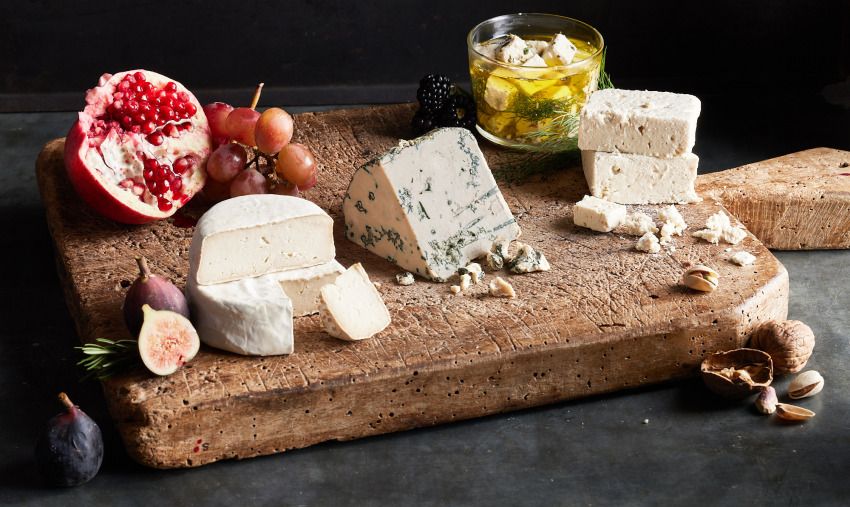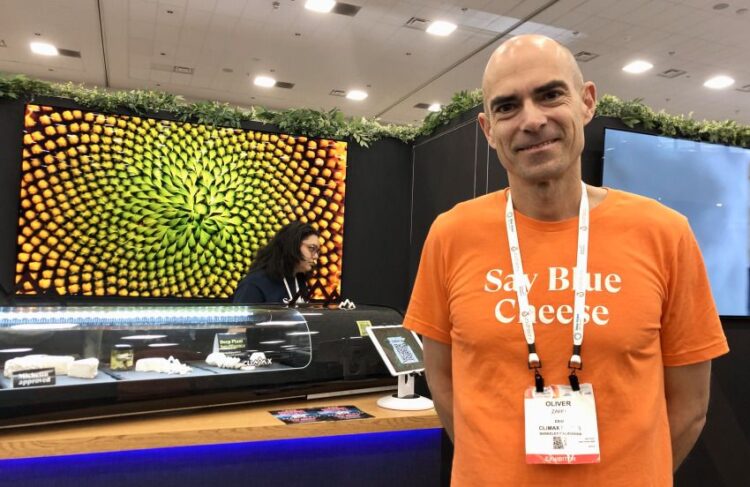“Right now, a lot of plant-based products are no better than animal products, and in some cases they are actually worse,” claims the founder at Climax Foods, a data-driven startup reverse engineering animal foods and rebuilding them with plants.
“We’re offering the first zero compromise product that is actually better than dairy cheese in every way on taste, texture, nutrition, and price,” Zahn told AFN at the Natural Products Expo West show earlier this month.
“Which is why we have multiple multibillion dollar dairy companies competing to work with us,” asserts Dr. Oliver Zahn, an astrophysicist with stints on his resumé as head of data science at Google; senior data scientist at SpaceX; lead data scientist at Impossible Foods; and director of cosmological physics at UC Berkeley.
“We have made a functional milk replacement that behaves just like dairy so you can use all the traditional dairy making processes to make a wide range of products.”
He added: “And when we get to scale, what we’re doing is cheaper than dairy, unlike current precision fermentation approaches [firms making dairy proteins in fermentation tanks with genetically engineered microbes]. We also don’t require any new regulatory approvals.”

Complex flavors, creamy textures, and more protein
His first products—plant-based Brie, Blue Cheese, Feta, and Chevre—are launching into high-end restaurants next month, and deliver complex flavors, creamy textures and protein levels that match dairy cheese.
“Things are building up at our new Petaluma plant, so we’re starting on a small-scale with Michelin-starred chefs, but hopefully by the end of the year we’ll also have a retail presence.”
Backed by $26.8 million in funding, Climax is getting positive feedback from buyers uninspired by existing plant-based cheese options, which typically combine oils and starches to mimic processed cheese or cultured nuts to try and replicate softer cheeses, claimed Zahn.
The company has not yet shared the recipes for its products, but Zahn said the ingredients list would be recognizable to consumers, “without gums, emulsifiers, and flavor or color additives. We have a cleaner ingredients statement, which is also cheaper.”

Replicating the functionality of animal foods with plants
While Climax Foods might be reverse engineering animal foods, it does not believe the only way to match their functionality is to make ‘animal-free’ animal proteins via precision fermentation, however.
“A lot of companies have gone down the path of all we need to do to make great animal-free cheese is make casein, or all we need to do is make egg products is to make albumin,” said Zahn.
“But the reality is, food is more complicated. When you make [individual] caseins recombinantly, they don’t perform in the same way [as casein micelles made by cows]. You also will have enormous scaling challenges, plus many people can’t tolerate dairy proteins.”
‘Where does most of the protein abundance and functionality diversity lie? It’s not in animals. It’s in plants’
He added: “It’s the same for cultivated meat, it won’t taste exactly like real meat because the entire metabolism of the cow is missing, and again, you have the scaling challenges.
“The question we asked at the beginning was, can you recreate those functionalities from plants? And we’re proving we can. There’s no reason to think that the way animals create something with a particular functionality, such as a protein that stretches and melts when heated, is the only way to do it.
“Where does most of the protein abundance and functionality diversity lie? It’s not in animals. It’s in plants.”
Asked about the business model at Climax Foods, he said: “We are a CPG (consumer packaged goods) company, but we’ve also discovered some key functional ingredients that are going to be very transformative in the industry. We may also look at licensing our technology or selling recipes to other companies or working with them to manufacture them.”





